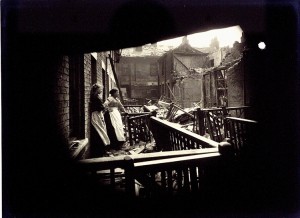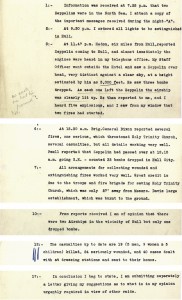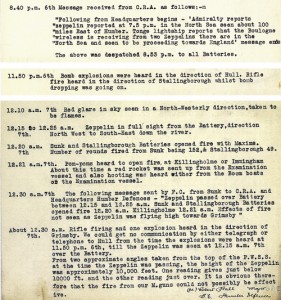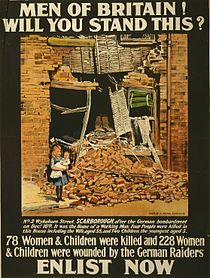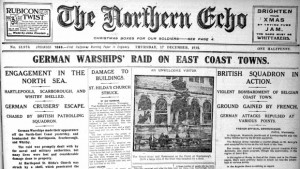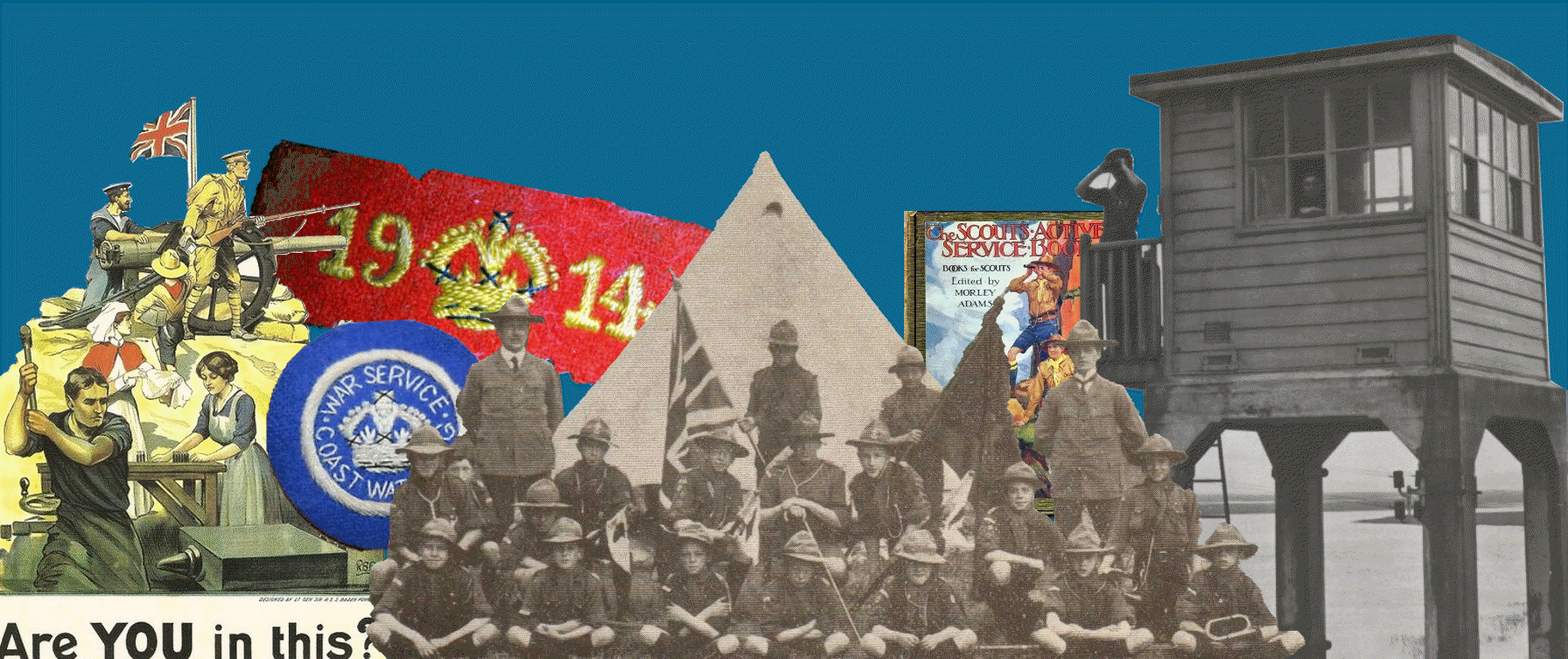
Guarding our shores
The First World War is usually remembered for the slaughter and destruction on the battlefields of France and Belgium. But in August 1914, as the storm clouds of war were gathering over Europe, the danger seemed far closer to home. The government believed that there was a very real threat of invasion and from the 1st August put the Navy on a war footing. Days later Britain was at war, and on the 8th August the order came from the Chief Scout Baden-Powell that Scouts everywhere should do their bit and help out in this National Emergency. The idea was that Scouts near the coast should report to the Coastguard and be used watching estuaries, ports, important facilities such as Coastguard Stations- and vitally, to keep watch for enemy Warships, Submarines, Planes and Zeppelins. Anything that they could do, to help guard our shores.
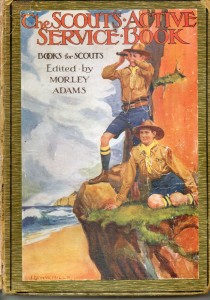
Coast watching
By 5pm that day, Scouts from all over Grimsby and Cleethorpes had been dispatched to the three sites that the Coastguard considered most vital- Donna Nook, Saltfleet and Theddlethorpe (with Bert Wood’s 3rds going to the latter) and there they stayed around the clock, keeping watch. At Theddlethorpe Bert Wood left his engineering studies in Hull to supervise the Scout’s activities, and the 3rds maintained a constant continuous presence there until they were relieved the following March (and used for watching duties at Grimsby docks)
“At every single station I visited, different incidents showed the varied nature of their work, such as these — ‘Warned a destroyer off the rocks in a fog’, ‘Sighted and reported airship going S.S.E., five miles distant’, ‘Provided night guard over damaged seaplane which was towed ashore by drifter’…. ‘Floating mine reported by fishing boat No.—- Proceeded with the Patrol boat which located and blew up the mine’… These lads completely won my admiration not only by their smartness in appearance and their keenness, but by their reliability. You must remember that in many of the stations visited there are no Coastguards or local Naval Officers, the boys are entirely on their own under their Patrol Leaders….These have been at the same work week after week, month after month, yet they do not seem tired of it. It all proves what boys can do when their heart is in their work and when they are trusted as reliable beings.”
Chief Scout Baden-Powell
Attacks on Home soil
The fear of German attacks on British soil proved to be very real, when at approximately 08.10 on the morning of 16th December 1914, the First High Seas Fleet Scouting Group, commanded by Admiral Franz von Hipper, successfully negotiated the hazardous minefields of the North Sea and unleashed a bombardment of the English seaports of Hartlepool, West Hartlepool, Whitby and Scarborough.
Lasting for just over an hour, the bombardment (of 1,150 shells) resulted in some 137 fatalities and 592 wounded. The two coastal defence batteries in Hartlepool (Heugh Battery and Lighthouse Battery) responded, firing 143 shells and damaging three German ships, including the heavy cruiser Blucher, but the German Fleet was largely untroubled by the British Navy and claimed the raid as a resounding success. This was the first attack on British soil since the start of the Great War and would not be the last. Young men in their droves rushed to their local recruitment offices to ‘avenge’ Scarborough, Whitby and Hartlepool.
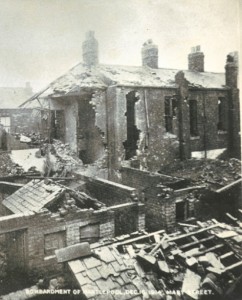
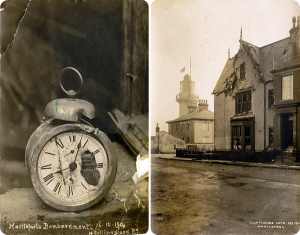
Death from above
On the morning of January 19th 1915 two German Zeppelin airships, the L3 and L4 took off from Germany. Both airships carried 30 hours of fuel, 8 bombs and 25 incendiary devices. They had been given permission by the Emperor Wilhelm II to attack military and industrial buildings. The two German Zeppelin airships crossed the Norfolk coastline at around 20.30. Having crossed the coast the L3 turned north and the L4 south. The incendiary bombs were dropped to enable the pilots to navigate to their chosen locations Great Yarmouth and Kings Lynn where they dropped their bombs. A total of nine people were killed and some buildings were damaged. But the effect of the raid on a population who were used to battles being fought by soldiers on the battlefield was immense. More raids soon followed (including over 12 attacks on Hull) The silent airships arrived without warning and with no purpose built shelters people hid in cellars or under tables. By the end of the First World War there had been a total of 52 Zeppelin raids on Britain claiming the lives of more than 500 people.
